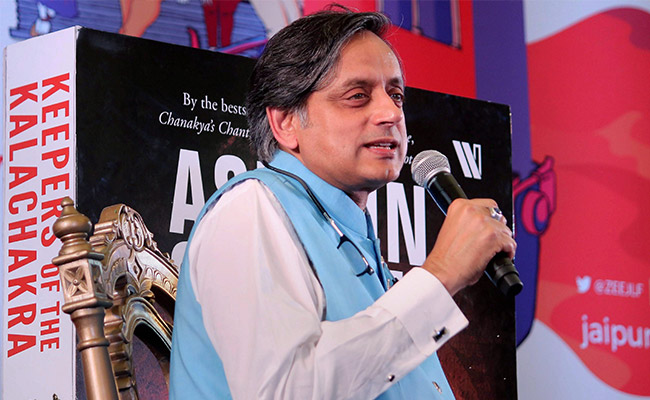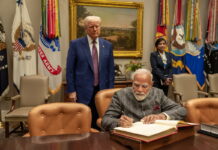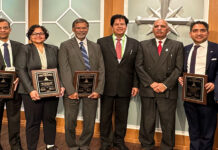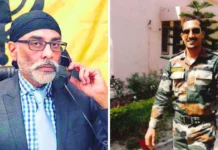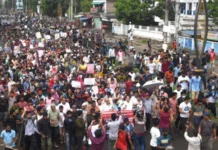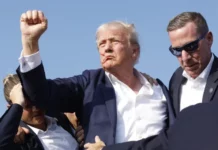SIRSHENDU PANTH
KOLKATA: Describing as a “temporary arrangement” the return of Sonia Gandhi to the post of Congress president, senior party leader Shashi Tharoor on Wednesday reiterated his call for elections to all leadership positions in order to revive the party and energise its workers.
In an interview with IANS, the career diplomat-turned politician spoke on the ongoing protests against the Citizenship (Amendment) Act and its potential to bring about opposition unity, the “dismal” situation in the country 68 months into Narendra Modi’s prime ministerial reign and the “uniformly negative” headlines in the world media about the happenings in India where “the social fabric is in tatters” and “tensions are dividing the society”.
The former Union minister said the Congress “certainly has to make a real effort” to revive.
According to the Thiruvananthapuram MP, party interim chief Sonia Gandhi had been a “very effective leader” in the past, but she chose to make way for the new generation of leadership.
Gandhi took over as president of the party in 1998 and was at the helm till September, 2017, when she made way for her son Rahul Gandhi. However, Rahul stepped down after the party’s disappointing show in last year’s general election when the Congress got only 44 seats. After lot of deliberations, Sonia Gandhi was made the interim chief last August.
“She had already made way for a new generation of leadership. So her coming back to office is clearly only a temporary arrangement. I have publicly called for elections to all the leadership positions including the working committee, so the party can be revived, we can energise the workers, stimulate interest among the voters,” said Tharoor on the sidelines of the Tata Steel Kolkata Literary Meet here.
Calling the Congress the party of Indian nationalism and inclusive India, he said it was the “natural alternative” to the “divisive and frankly negative politics” of the ruling BJP-spearheaded NDA government of Modi.
He said the ongoing intense anti-CAA protests seemed unique in the sense that they were “largely self-motivated by ordinary citizens”, and political parties were not the engine of the movement.
“The ordinary people, the students out on the campuses, the housewives on the streets, the ladies of Shaheen Bagh in Delhi, these are people who are not organised by political parties.
“They themselves are genuinely protesting about what is being done to their country. And to my mind that is the extraordinary thing about these protests”.
He said with many political parties agreeing or wanting to support the people’s protests, “if all goes well we will have an opportunity to try and, to put it bluntly, use the awakened consciousness of the public to bring parties together”.
Tharoor, who handled the portfolios of minister of state for external affairs and human resource development in the Manmohan Singh Cabinet, said the challenge in uniting the opposition lay in the fact that many opposition parties are themselves rivals in their home states.
“Apart from the Congress and the BJP, everyone has a strongly regional focus, often confined to one state – whether it is Trinamool Congress in Bengal, CPI-M in Kerala, or Samajwadi Party in UP, etc.”
“And because of the state focus, naturally their success in their own states sometimes can seem more important than subordinating themselves in Delhi to a party that may be their rival in their home state. These are issues which have to be worked out,” said Tharoor.
Coming down heavily on the Modi government, he said rather than implementing its slogan of ‘Sabka saath, sabka vikaas’ (Development for all), the government has done the opposite by dividing the nation and failed to usher in any development.
He alleged while the economic growth has plummeted, there has been price escalation of every item, with unemployment touching a record high, and farmers’ suicides breaking all records.
“Every indicator is negative…. Where can we find anything positive to look at in this government’s performance?”
He said “even bigger than the economic failure” was the “divisive socio-cultural agenda” that is dividing the country on identity issues and religion.
In an obvious reference to the government passing the CAA and time and again talking about a possible nationwide NRC to drive away “infiltrators”, Tharoor said: “Why these people are obsessed about a religious issue that was settled 70 years ago, I don’t know. But today they are reopening wounds that should have been left to heal, rather than made worse and inflamed by their conduct.”
Turning to Modi’s foreign policy, he said the Prime Minister brought a lot of energy to his initial travels around the world.
“But the problem is that everyone looks at the reality of the country behind him. You can be a very good salesman, but even the best salesman can only sell an empty package up to a point.
“Once you have bought an empty package once or twice, you won’t buy it again. And so many people have turned away from India. If you look at the world media today, there is not a single positive story about India … all uniformly negative,” he said.
He ridiculed Modi loyalists’ claims that the Prime Minister has raised the stature of India globally.
“I’d like to see some evidence for that. Because if anything, we have never seen in the 72 years of India’s independence, except for the period of emergency (1975-77), such an unsustained level of negative, unfriendly headlines, dismayed by what is being done by Modi to this country.” IANS

